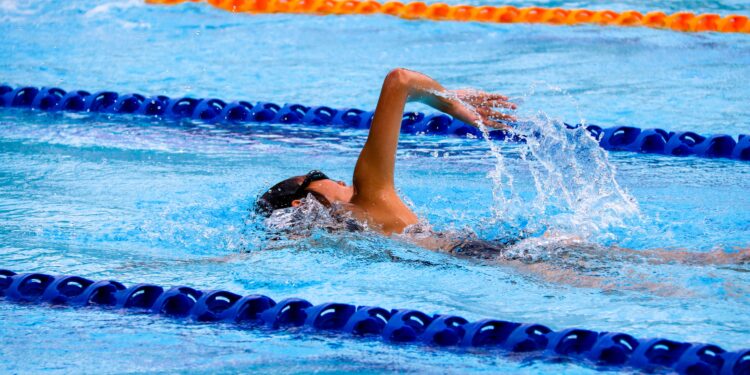Swimming offers a fun and relaxed way to stay cool on those scorching summer days while encouraging young athletes to engage in healthy competition and sportsmanship. Trusted swimming companies like Higgins Aquatics are the best place to start.
Educating kids on the importance of participating, learning from mistakes, and supporting their fellow competitors is crucial in a culture that occasionally places a value on winning. We will explore how swimming completions can help our young swimmers in and out of the pool.
What To Know About Swimming Competitions For Kids
Swimming competitions are fun and exciting activities for young swimmers to develop their abilities and compete against their peers. Competitors use a specific stroke to swim a particular distance in a race. Different events, including freestyle, breaststroke, backstrokes, and butterfly, are frequently included in these competitions. The competitions will have a fixed distance, such as 25 meters, 50 meters or 100 meters.
Swimmers may compete over shorter or longer distances depending on their age category. Swimmers are usually divided into heats, competing against other swimmers of comparable skill and speed. Swimmers compete against the clock, recording and comparing their times to those of competitors in their event. Different age categories are frequently used in competitions so swimmers can compete against others their age. Medals and awards are typically presented to the top competitors in each age group and event.
Reading Suggestion: 5 Ways Parents Can Engage in Their Kids Success From Day One
What Is The Importance Of Instilling Sportsmanship?
- Here are some benefits of encouraging sportsmanship and healthy completion in kids: Respect: Sportsmanship teaches kids to respect others. Good sportsmanship requires treating people with regard, understanding their abilities and flaws, and following the rules of the game.
- Early exposure to these qualities makes children adopt and utilise them in school and other social interactions.
- Promotes teamwork and cooperation: Children’s healthy competitiveness and sportsmanship are encouraged, which helps promote these qualities. Kids will understand how their actions affect other team members and how they are equally affected
- They improve their interpersonal and communication abilities while learning to cooperate toward a common objective.
- Encourages youngsters to keep active and form
- better physical health and wellness habits
- by getting them involved in sports and other physical activities and games that lays the groundwork for a better lifestyle in the future and improve their current health.
- Increases self-confidence and self-esteem: kids can get more confident and have self-esteem by learning to have healthy completions and practice sportsmanship. By challenging themselves and overcoming obstacles, they discover a strong sense of self-worth. Sports-related activities and games teach kids valuable life lessons, including perseverance, dedication, and strenuous effort. This promotes lifelong learning and development.
- They gain positive attitudes toward study and personal growth thanks to these abilities, which will benefit them all their lives.
Conclusion
In conclusion, teaching kids good sportsmanship and healthy competition is crucial because doing so promotes cooperation, respect, physical health, self-assurance, lifetime learning and development, and teamwork with peers in children.























